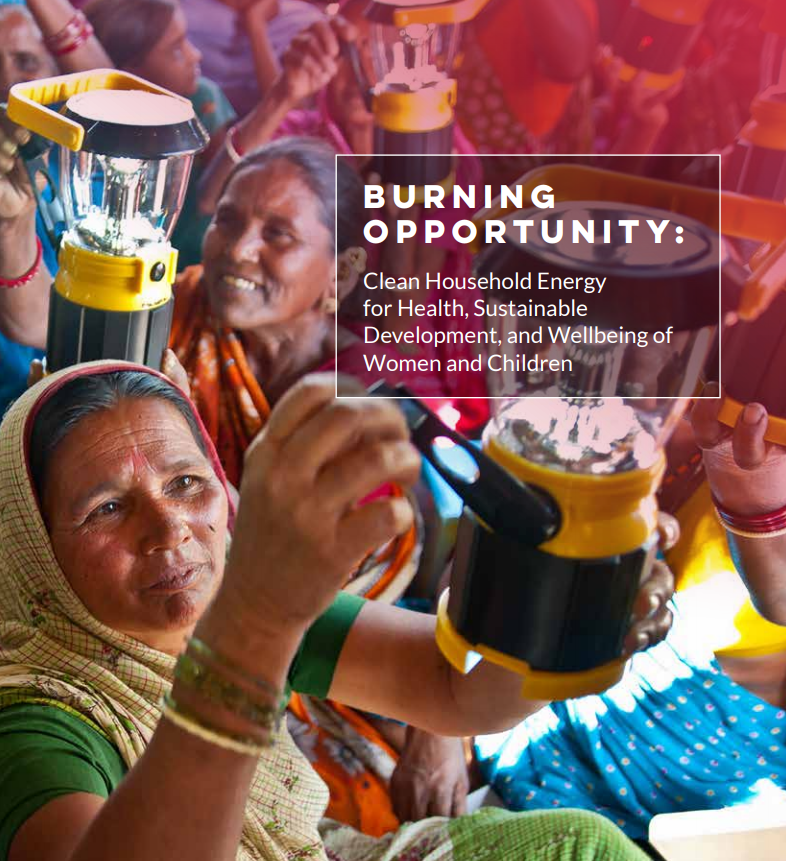
Burning Opportunity: Clean Household Energy for Health, Sustainable Development, and Wellbeing of Women and Children
Publication details
Editors: World Health Organization
Number of pages: 113 p.
Publication date: 2016
Languages: English
ISBN: 9789241565233
Overview
Household air pollution is the single most important environmental health risk worldwide, and women and children are at particularly high risk from exposure. This global report provides new data on the still-pervasive use of polluting fuels for home cooking, lighting and heating, as well as an in-depth look at the impacts on women and children.
Despite more than a decade of work to reduce domestic air pollution sources, progress toward universal access to clean cooking fuels remains far too slow. Almost 3.1 billion people still rely on polluting, inefficient energy systems such as biomass, coal or kerosene to meet their daily cooking needs – a number virtually unchanged over the past decade. And too many households still depend on polluting fuels and devices for heating and lighting – particularly kerosene.
For instance, almost half of all African households across the 25 countries surveyed rely primarily upon highly-polluting kerosene lamps, while about 30% of households surveyed in South-East Asia use kerosene lights. Conversely, solar powered lights still have very low uptake (1% or less) in many countries.
Women and girls bear the largest health burden not only from domestic pollution sources, but often also from related fuel-gathering tasks. For instance, available survey data from 13 countries showed that girls in sub-Saharan African homes with polluting cookstoves spend about 18 hours weekly collecting fuel or water, while boys spend 15 hours. In homes mainly using cleaner stoves and fuels, girls spend only 5 hours weekly collecting fuel or water, and boys just 2 hours.
By cleaning up household energy, we have an unprecedented opportunity to improve human health, slow down climate change and free hundreds of millions of people – especially women and children – from the drudgery of daily fuel collection. Clean household energy can drive progress on Sustainable Development Goals for energy, health, gender equality, sustainable urban environments, and climate action. Increased investments, targeted interventions and evidence-based policies can ignite this "burning opportunity" to bring about change.



